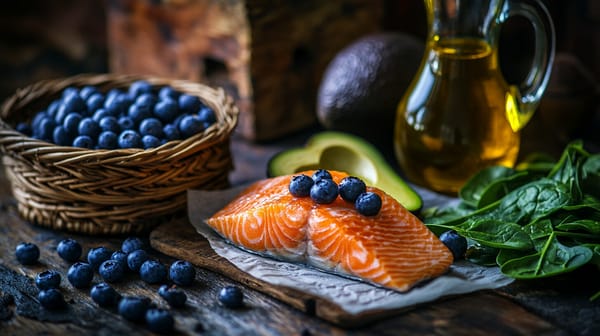A Smarter Approach to Treat Meals During the Holidays

Treat Meals Don't Have to Derail Your Progress
When it comes to losing weight and maintaining a healthy lifestyle, the concept of "cheat meals" can be contentious. Some people firmly believe that allowing themselves to indulge in less-than-healthy foods, even occasionally, will completely undo their progress and send them spiraling back into old, unhealthy habits. However, others view these treat meals as a necessary release valve - a way to take the pressure off and avoid feeling deprived, which ultimately helps them stay focused and on track with their goals.
The reality is, both perspectives have merit. Your mindset and approach to treat meals is crucial in determining whether they help or hinder your weight loss efforts. Here are some expert tips for indulging intelligently during the holiday season:
Don't Schedule Your Treat Meals
While planning ahead is generally a good strategy for meeting your nutrition goals, like prepping healthy meals for the week, scheduling in specific cheat meals or cheat days can backfire. "Being in a perpetual cycle of deficit for days, only so you can go wild on a cheat day, can lead to an unhealthy mindset around food," says certified nutritionist Kimberly Snyder. Instead, allow yourself the flexibility to indulge occasionally without fixating on an exact day and time. This helps you avoid the restriction-binge cycle and stick to healthy habits more consistently.
Change Your Language from "Cheat" to "Treat"
The words you use to describe your indulgent food choices matter. Referring to them as "treats" rather than "cheats" implies a reward and evokes more positive feelings. This is a big shift from saying things like "I was so bad yesterday" in regards to your eating. Registered dietitian Michelle Abbey notes that just thinking of something as a "cheat meal" can push people to seek out high-calorie, inflammatory foods that make them feel physically and mentally unwell afterward. Reframing it as a treat helps you make more mindful, moderate choices.
See Treat Meals as Part of Your Goals, Not a Detour
Another helpful perspective shift is viewing your treat meals as part of your healthy lifestyle goals rather than a deviation from them. Caitlin Self, a certified nutrition specialist, points out that changing up your diet with less-healthy foods occasionally is actually beneficial for your body. It provides a slight metabolic boost and helps you avoid feeling restricted, which is key for long-term success.
Self adds that if your ultimate aim is to develop a healthy relationship with food, periodic treats are essential for learning to eat intuitively. "When you do that, you'll likely discover that all foods can have a place, no food is inherently good or bad," she says. "That means a 'cheat' is just another meal you enjoyed, not a moral issue or something you've done wrong."
Focus on the Big Picture
The most important thing to remember is that a single meal, treat or not, will not make or break your progress. What matters most is your overall eating pattern. Consistently fueling your body with nutritious whole foods should be the foundation, but that doesn't mean treats can't fit in.
If you find that treat meals tend to turn into treat days or weeks, it may be a sign that you're being too restrictive in your diet overall. Extreme restriction often leads to rebound bingeing. Instead, work on creating an eating pattern that you can stick with long-term - one that allows you to enjoy your favorite treats in moderation while prioritizing nutrient-dense foods.
Savor and Enjoy Your Treats
When you do choose to have a treat meal, take the time to savor and enjoy it to the fullest. Eat slowly and mindfully, appreciating the flavors and textures. Avoid distractions like watching TV or scrolling on your phone. Tune into your hunger and fullness signals so you don't overeat to the point of feeling uncomfortably stuffed. Choose treats that are truly worth it to you, not just any junk food in sight.
Remember, a healthy relationship with food involves flexibility, not perfection. By reframing your perspective on treat meals and learning to incorporate them in a balanced way, you set yourself up for long-term, sustainable success - whether it's the holiday season or not.




